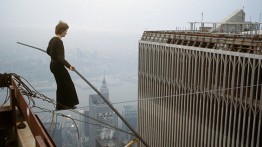Panel Discussion | Pedagogies of Risk: KADK in Conversation with The Cooper Union
Thursday, September 26, 2019, 6 - 8:30pm

Jean-Louis Blondeau / Polaris Images
With the generous collaboration of KADK (The Royal Danish Academy of Fine Arts), Nader Tehrani invites students, faculty, and alumni to a panel discussion including distinguished faculty from both schools. Peter Bertram, Arne Høi, Anne Romme (CU AR’05) of KADK, and David Gersten, Sue Ferguson Gussow, Mersiha Veledar, as well as respondents Joan Ockman, Nora Akawi, and Lorena del Río of The Cooper Union, will discuss architecture pedagogies and the engagement of risk, control, and productive failure.
Following the event, we welcome everyone for a reception in the School of Architecture Lobby.
The pedagogical moment is a vulnerable one. On the one hand, there are forces that see the responsibility of the school to prepare students for a complex world ‘out there’ — appealing to convention, compliance, and professionalism. On the other, there are equally persuasive arguments in establishing the autonomy of the academic environment to create a distance from the world, if only to be enable the imagination for a different reality than the one that exists — hoping for the pause that allows for speculation, transformation, and invention. If it would seem the former requires control and the latter risk, then it would be too easy a dichotomy; any syllabus which aims at responding to the world in which we live today must confront the dilemma between risk and control, establishing what of the known is too risky to be ignorant of, and what of the risk may lead to a higher form of learning. If nothing is at stake and everything is controlled, a studio will never depart from the expected, nor will it ever venture into new territories to produce new forms of knowledge. But the precondition of learning also requires the risk of failure; it is tethered to process, iteration, and experimentation, much of which requires the productivity of missteps to yield ample variations from which a critical encounter can be constructed.
To the extent that we entrust architecture to bring about new, critical views on contemporary problems and challenges, then it may be our corollary responsibility to ensure that our students be open to risk and the vulnerability of failure. Whether in the arts or sciences, this entails the abandonment of “safety” as the basis of exploration. As teachers, we must ask ourselves whether students would be open to risk if the faculty did not expose themselves to the same set of vulnerabilities. As we reckon with the productive failures of control and risk, this is an opportunity to establish how we define each term, what mechanisms of control are productive, and where risk is well-calculated. To the same end, it is a good moment to challenge what controls are merely coercive and what risks reckless, and to what degree each might be embedded in a common discourse to inform a mutually dependent set of debates. Finally, we might help to define the differences between a productive failure and the failure of creating an environment in which nothing is learned nor advanced.
This event is open to current Cooper Union students, faculty, and staff. Foundation Building, 3rd Floor Lobby.
View the full Fall 2019 Lectures and Events List.
Located at 7 East 7th Street, between Third and Fourth Avenues




